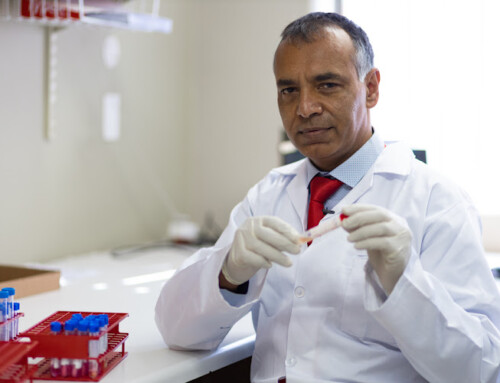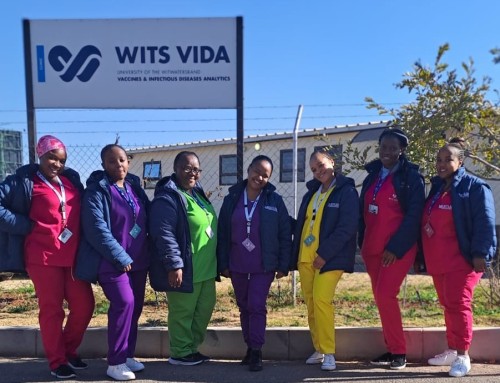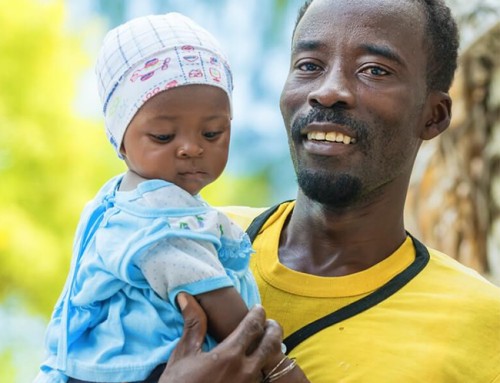The Wits Vaccines and Infectious Diseases Analytical (VIDA) research unit conducted the phase 1B/2A clinical trial.
The findings, published in Lancet HIV on 17 August 2021, show that the AstraZeneca Covid-19 vaccine is likely to work as well in people living with HIV compared with people who are HIV negative.
These interim findings are vital for informing the clinical management of people with HIV during the Covid-19 pandemic.
Clinical trials that evaluate the safety and immunogenicity of Covid-19 vaccines in people living with HIV are limited generally and virtually non-existent in Africa. This is despite the overwhelming prevalence of HIV infection in Africa and in South Africa particularly.
“We searched PubMed for peer-reviewed articles published between 1 January 2019 and 29 June 2021, using the terms ‘safety’ and ‘Covid-19’ and ‘vaccine’, but we did not find any reports that evaluated safety and immunogenicity of Covid-19 vaccines in this population,” says Shabir Madhi, Professor of Vaccinology and Director of Wits VIDA, which led South Africa and Africa’s first Covid-19 vaccine trial in June 2020.
Understanding Covid-19 vaccination in people with HIV in SA
People with HIV are at greater risk for infectious diseases and are at higher risk of dying when admitted to hospital for severe Covid-19 than are the general population.
Furthermore, compared with HIV-negative individuals, people with HIV are at greater risk for infectious diseases, such as influenza, including during antiretroviral therapy (ART).
Risk factors for severe Covid-19 in people with HIV include more advanced stage of HIV/AIDS, the HIV-1 infection not being virally suppressed, and CD4 counts below 500 cells per microlitre.
About the HIV study in the AstraZeneca Covid-19 vaccine trial in South AfricaThe study was an interim analysis of a randomised, double-blind, placebo-controlled, phase 1B/2A trial.
Between 17 August and 12 November 2020, 104 people living with HIV were enrolled in the trial. Seventy HIV negative people were enrolled between 24 June and 29 July 2020.
Eligibility criteria for people with HIV included being on ART for at least three months, with a plasma HIV viral load of less than 1000 copies per microlitre.
The HIV study, which was a unique addition to the AstraZeneca Covid-19 vaccine clinical trial, aimed to assess safety and immunogenicity of this vaccine in people with HIV and HIV-negative people in South Africa.
The primary endpoint in both HIV-negative participants and people with HIV was the safety, tolerability, and reactogenicity profile of the AstraZeneca Covid-19 vaccine.
Reactogenicity refers to the property of a vaccine of being able to produce common adverse reactions.
The interim findings show that the AstraZeneca Covid-19 vaccine was well tolerated and showed favourable safety and immunogenicity in people with HIV, including heightened immunogenicity in SARS-CoV-2 baseline-seropositive participants.
“These interim findings are vital for informing the clinical management of people with HIV during the Covid-19 pandemic,” says Madhi. “As the delta variant continues to dominate in South Africa – and the C.1.2 variant emerges as a variant of concern – vaccination remains the only option to avoid hospitalisation and death from Covid-19.”


